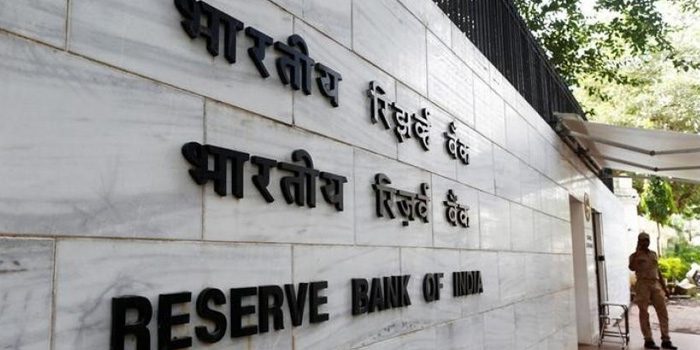The government must think of large-scale restructuring and privatisation only after the banking sector mess is cleared and the frauds and NPAs are taken care of and the banks’ balance sheets are back into strength. Here’s an analysis for Different Truths.
It is rather irritatingly repetitive that borrowers jump their loans with banks. More so, large borrowers, who are themselves hugely rich, are making away with bank money. Details are now emerging, which show the ultimate hit on the banking system could top Rs. 20,000 crore. Maybe even more.
Contrary to the English proverb “do not cry over spilt milk”, what we are now witnessing is exactly that. And heading the list of wailers are the politicians, who are themselves obscenely rich, carry the ill fame of having defalcated funds, or have witnessed to such process. Witness, Derek O’Brien and remember the litany of woes which hit the smallest of small savers in course of the Sarada loan scam.
But then, what is to be done? What should the government do to prevent the course of events from becoming a perfect tsunami threatening the Indian financial system? This is not just scaremongering, it is real.
There are two broad courses of action the government can adopt. One is to let the perpetrators suffer, including hordes of innocent people who probably had nothing to do with the pilferage. In fact, the worst suffer would be those depositors who have trusted their money with the banks, thinking that the government of India was behind these banks. The prime minister himself had shouted from the rooftop and cajoled banks to open accounts for those who did not have any.
The government has since claimed credit in the numbers of these accounts – the Prime Minister’s Jan Dhan Yojna. The risk is that it can soon become Prime Minister’s Dhan Nidhan Yojna. Because consider what happens if the amounts defrauded mount to much higher levels than so far detected.
If this entire burden comes on the beleaguered Punjab National Bank, it might just as well go under. Who then, ultimately loses? It will be the ordinary depositors, or the public, small savers who have left most of their lifetime savings with the banks on the presumption that these are government owned and therefore the money is safe.
But let us remember the PNB frauds case is not an isolated episode for Indian public sector banks. We have been getting familiar with a litany of woes: from bulging sticky loans portfolio, funds locked up in non-performing assets, willful defaulters, and time and again, governments’ decisions to announce loan waivers. All these have been eating away the entrails of the banking system. In that context, some voices have suggested corrective actions: including radical restructuring on free market principles.
Some ardent, almost bigoted, believers of free-market economics believe that these precepts should give us the future course of action. They now believe that the panacea to correct the situation would be let some banks fail and then embark upon a rapid and drastic privatisation. In the process of restructuring, the banks’ balance sheets are to be improved and in case of financial adjustments, if need be, the depositors must also have to chip in. Already, this aspect of the threat to ordinary depositors’ money had come to light. Their deposits are insured only to the extent of Rs1 lakh, the rest would get blown up if the banks fail or readjustments have to be made. Privatisation and merger of banks are the panaceas of all ills.
All too fine, theoretically. But the administration of such a corrective action across the public sector banking space could have a disastrous impact. It would implode. The entire trust in the banking system would be lost. A good part of the savings of the household sector would get wiped out. Faced with the threat of a similar nature, the US banking authorities and the Federal government had adopted an entirely different approach.
Instead of the free market economics, the authorities had taken on a curse of supporting the beleaguered banks. The Treasury invested billions into the capital bases of affected banks and shored up their operations. They overnight became publicly owned institutions rather than privately owned banks. Many squeaked and felt uncomfortable. But government support bulked up their worth and for the time being they could avoid the fate of Lehmann Brothers, one of the most storied institutions of the financial system. If the Lehmann phenomenon had spread, recognise what costs this would have inflicted.
So the second alternative course of action for the government now could be to boldly take over the reins of the situation. The government should relentlessly pursue the perpetrators of the crime and give exemplary punishment to all concerned. But then, it should announce firmly that the government is behind the beleaguered public sector banks. None of them should be allowed to fail. Contributing to banks’ capital bases, even at the cost of inflating the fiscal deficit, would help avoid a greater threat.
The government must think of large-scale restructuring and privatisation only after the banking sector mess is cleared and the frauds and NPAs are taken care of and the banks’ balance sheets are back into strength. Consolidation of banks into mega units through mergers, as was first put forward by former finance minister P Chidambaram, is no solution. It can create mega problems, instead of megabanks, as the experience of the merger of banks has not been too happy.
Instead, the existing PSU banks, once strengthened, should be given an arms’ length treatment by the government by not interfering with their functioning, but demanding strict performance. So far, the RBI has not been responsible for anyone. When RBI’s inspections and monitoring of banks fail, they should be booked and held responsible for the failure of a monitoring mechanism. And what is the role of the audit firms? How come auditing does not reveal the wrongdoing when it starts? These are also systemic checks and balances which are essential. Because when dealing with money, greed will always take the better of judgment and therefore authorities cannot stop suspecting.
Taking the current episode as a cue, the union finance ministry should adopt a proactive stance in remedying the PSU banks’ morass. It should frontally attack the cumulative NPAs issue and formulate a similar scheme as the “Troubled Assets Relief Programme (TARP)” for the banking system. Banks were nationalised many, many years back and now should draw the consequences of that action. It cannot run away from its responsibility and redeem itself fully by placing its imprimatur behind institutions owned by it.
Anjan Roy
©IPA Service
Photos from the Internet
#PNB #NPA #Suffere #BankingSector #Punishment #Nationalised #IPA #DifferentTruths





 By
By

 By
By
 By
By